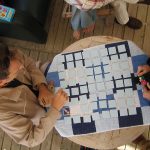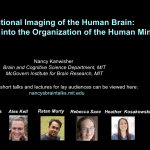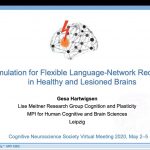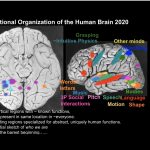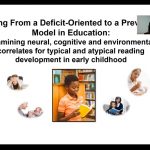In the 1990s, research led by Lynn Hasher, then at Duke University, identified some stark differences in how older and younger adults interpret narrative passages. They found that when reading passages, older adults form the same inferences that young adults do and when interpretations turn out to be wrong, both groups are able to correct […]
Beyond the Science: 4 Lessons Learned from the Kanwisher Award Talk
Guest Post by Paula P. Brooks Hearing from luminaries in a scientist’s field can have many benefits, as I learned during this year’s CNS conference. As this year’s recipient of the George A. Miller Prize in Cognitive Neuroscience, Nancy Kanwisher had the difficult job of delivering an effective award lecture over video conference. Despite the […]
CNS Statement: Black Lives Matter
The Cognitive Neuroscience Society (CNS) stands against racism, hate, and injustice. We affirm unequivocally that Black Lives Matter. CNS condemns all acts of discrimination and violence against Black people and other people of color. As an international organization, CNS is committed to the fight against racism, and to promoting inclusion and diversity in science and […]
Exploring Novel Paths for Brain Stimulation
CNS 2020 Guest Post by Anne Billot Being able to directly target specific areas of the brain is important both for cognitive neuroscientists seeking to establish direct causal links between neural signal and cognitive processes and for clinicians treating neurological disorders. The gold standard for approaching such tasks has been to directly manipulate the brain […]
TMS Provides a Window into Language Network Reorganization After a Stroke
CNS 2020 Guest Post by Natalie Gilmore In recent years, scientists have used neurostimulation techniques such as transcranial magnetic stimulation (TMS) to help understand how various aspects of the brain work. By sending electrical currents to one part of the brain, they can help isolate functionality. Such studies are especially valuable in understanding how the […]
CNS 2020 Trainee Panel Explores Adaption for an Unpredictable Future
Guest post by Richard T. Ward Although members of the Cognitive Neuroscience Society (CNS) experienced this year’s annual meeting in the safety and comfort of their homes rather than together in Boston, that did not prevent them from connecting from around the world to share their scientific work and insights. In fact, one common theme […]
CNS 2020 Day 4 Highlights
The final day of CNS 2020 Virtual brought us a diverse set of symposia, in addition to the final poster sessions and an award lecture by Nancy Kanwisher. Her 26th Annual George A. Miller Prize in Cognitive Neuroscience Lecture was entitled Functional Imaging of the Human Brain: A Window into the Architecture of the Mind. […]
From Expressions to Mind Wandering: Using Computers to Illuminate Human Emotions
CNS 2020 Press Release May 5, 2020 – A common view of human emotions is that they are too idiosyncratic and subjective to be studied scientifically. But as being presented at the Cognitive Neuroscience Society (CNS) virtual meeting today, cognitive neuroscientists are using contemporary, data-driven computational methods to overturn old ideas about the structure of […]
CNS 2020 Day 3 Highlights
The third day of CNS 2020 Virtual was rich and full, with 21 symposium talks, 3 panel discussions (one was live!), 2 award talks, and 2 poster sessions. From looking at the neural correlates of reading development to examining the sequential neural replay of human memories, symposia covered the latest research in cognitive neuroscience. Young […]
From Scaffolding to Screens: Understanding the Developing Brain for Reading
CNS 2020 Press Release May 4, 2020 – In the debate about nature versus nurture for developing reading skills, cognitive neuroscientists have a clear message: both matter. From infancy, children have a neural scaffolding in place upon which environmental factors refine and build reading skills. In new work being presented today at the Cognitive Neuroscience […]

